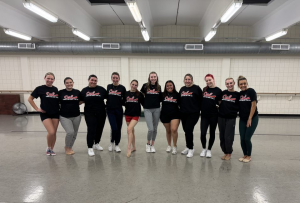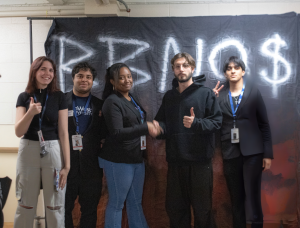By voting for $15 minimum wage, workers face murky future

September 4, 2015
If you think $7.25 an hour (Pennsylvania’s minimum wage) is sufficient for a person to live on, you couldn’t be more wrong. According to a study by the National Low Income Housing Coalition, nowhere in the United States can a person making minimum wage afford a two-bedroom apartment.
As the cost of living increases, there is no question minimum wage should follow suit. However, there is a huge difference between making the minimum wage a living wage and raising it to $15 an hour.
Contrary to others who hold this opinion, I’m not going to argue that a significant minimum wage increase will result in inflation. I’m not going to belittle the skills and character of those who work minimum wage jobs. Instead, I’m going to keep the best interests of those people making minimum wage at the forefront. And, although it may seem illogical when giving the situation a cursory glance, raising the minimum wage to $15 an hour doesn’t benefit those working minimum wage jobs.
Why? Because, as anyone who has an understanding of business knows, anytime a good or service becomes expensive and expendable, a business will have no qualms about cutting it. As cruel as it is, continued technological development means the day is fast approaching when minimum wage workers are treated as just another item on a budget that needs cut.
If you don’t believe that will ever happen, I regret to inform you the process is already beginning in the fast food industry. According to the Washington Post, major restaurant chains, citing the threat of a drastic increase in minimum wage along with stagnated worker productivity, are already looking at expanding kiosk and tablet-based ordering that makes cashiers obsolete. Some companies even believe innovations like “drone ordering,” could make it to where patrons don’t even have to step foot in restaurants. Long story short, innovations aimed at increasing owners’ bottom lines have been and will continue to be pushed to the forefront of an industry that provides many Americans with their sole source of income. In fact, according to Robert Bleu, a business consultant and restaurant owner in Chicago, an industry that currently employs “2.4 million wait staffers, nearly 3 million cooks and food preparers and many of the nation’s 3.3 million cashiers” could eventually see its employee base cut in half.
And, for those employees that remain, their job descriptions will likely change. Instead of holding a hospitality role, employees will likely have to know how to fix and operate the technology that powers restaurants. Eventually, who’s to say fast food companies, in order to save time and resources, don’t start requiring prerequisite training or even some postsecondary education in computer science in order to obtain a job?
As you can see, this slippery slope is leading to a world where the people who currently want $15 an hour to do a job will no longer be able to find or meet the requirements for a job. That sucks for workers. That sucks for their families. Heck, it even sucks for patrons.
As many will agree, there is something special about the human touch in the service industry. After all, a machine can’t customize your order or be reassuring in the same way a person can. Some companies are making it a point to tiptoe their way to innovation just so customers can continue to have that face-to-face experience.
If minimum wage were only raised to, say, $10.50 an hour, maybe companies would bite the bullet and acknowledge the true value of a good worker. However, no matter how much Mitt Romney tries to convince you otherwise, corporations aren’t people with hearts. Instead, they are entities with one goal: making a profit. A $15 an hour minimum wage will do nothing but hurt a company’s bottom line and in turn, force them to make what some would consider cruel personnel cuts. Nothing personal.





